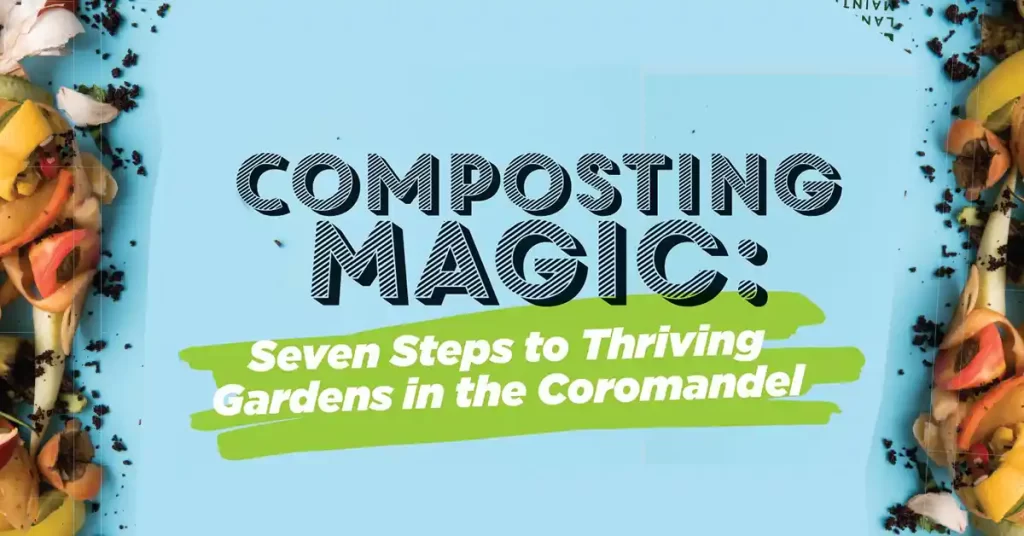
Seven Steps to Thriving Gardens in the Coromandel
In our beloved Coromandel region, where the land meets the sea in a symphony of beauty, every effort towards sustainable living resonates deeply. It’s great that our region now has a food scrap service. Less waste in landfills, fewer greenhouse gases – it’s a win-win for Mother Nature.
Landfills turn food scraps into methane, a harmful greenhouse gas. The shift towards food scrap collection for composting recycles organics wisely, enriching our soil and nurturing our environment.
However, don’t overlook the power of a home composting set-up. It’s a direct way to nurture our gardens and live in sync with our cherished land.
Here are seven steps to ensure your compost thrives in the Coromandel:
1) Choose your spot wisely
Find a spot that strikes a balance between sunlight and shade. This sweet spot ensures the compost stays warm enough to break down effectively while preventing it from drying out too quickly.
2) The base layer
Start with a layer of coarse materials like twigs or straw to encourage airflow. This helps to prevent the compost from becoming too compact and enhances drainage.
3) Add the browns and greens
Balance is key. ‘Browns’ include materials like dried leaves, straw, and cardboard, while ‘greens’ consist of food scraps and garden clippings. Alternate layers of these materials to create a healthy mixture.
4) Turn and mix
Give your compost a regular stir. This aerates the pile, promoting decomposition and preventing any unpleasant odours.
5) Keep it moist
Your compost pile should be as damp as a wrung-out sponge. Regularly sprinkle water to maintain the moisture level necessary for decomposition.
6) Patience is a virtue
Composting is a slow and steady process. Be patient, and soon you’ll have nutrient-rich compost to enrich your garden.
7) Harvest with care
Once your compost resembles dark, crumbly soil and has a pleasant earthy smell, it’s ready to use. Spread it over your garden beds to give your plants a natural boost of nourishment.
Don’t include meat, dairy and oily foods in your compost. These items can attract pests and slow down the decomposition process. Also, steer clear of weeds with mature seeds and plants treated with pesticides.
By embracing these seven steps, you’re not only turning kitchen scraps into valuable resources but also cultivating a stronger connection with your garden and the land that envelops it.
So, let’s roll up our sleeves and dive into the world of composting. As our gardens flourish, so does our bond with this enchanting region we call home. Let’s nurture the earth that nurtures us.
Check out Chops Landscaping Design and Maintenance here.
Help us take Coromind Magazine to new heights by becoming a member. Click here






